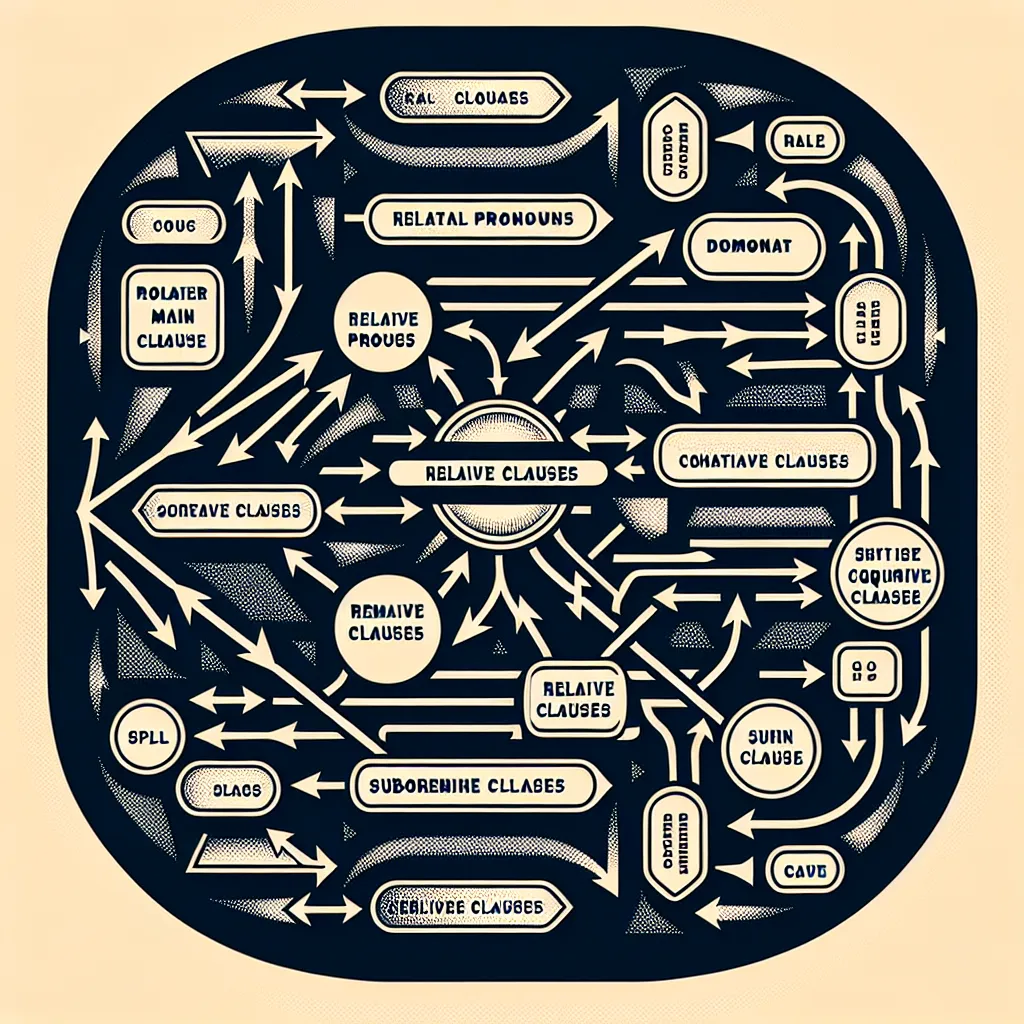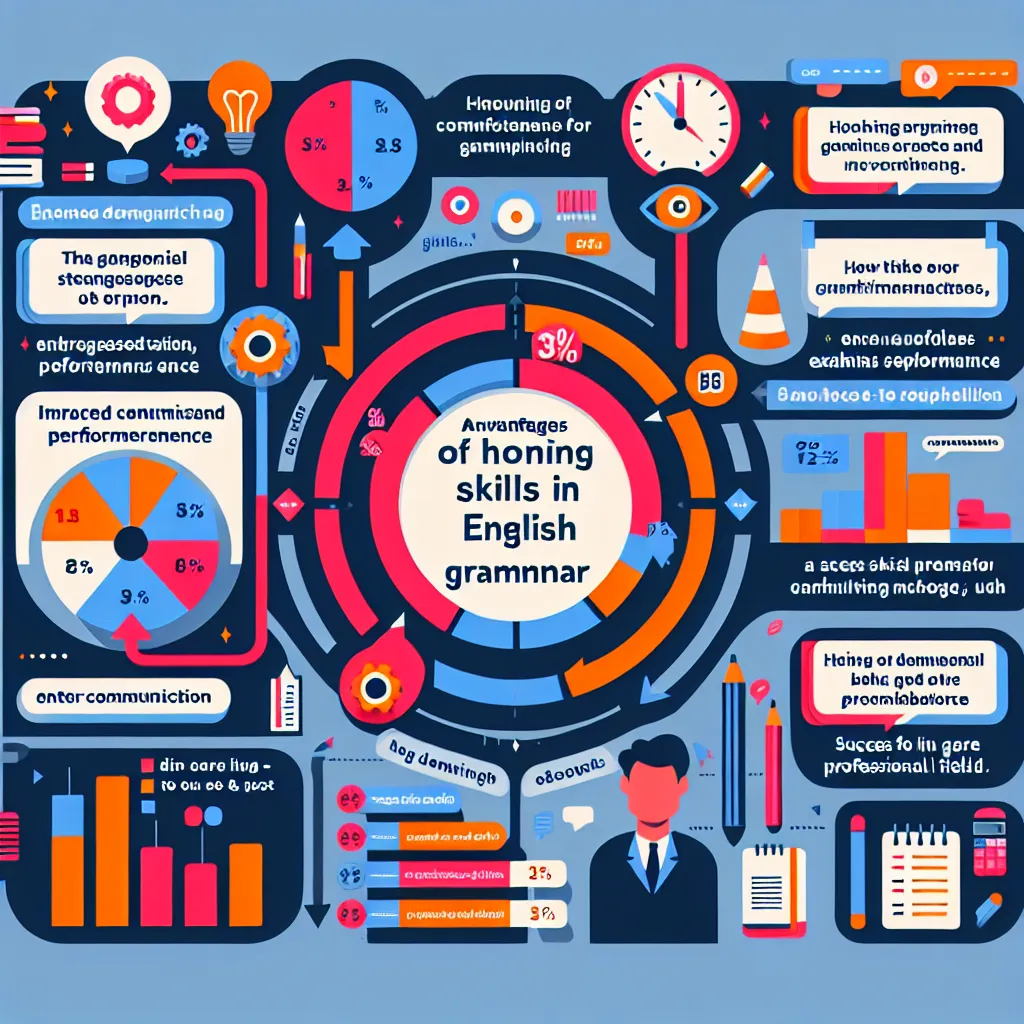Complex relative clauses are an essential component of advanced English grammar. Mastering these structures can significantly enhance your writing and speaking skills, allowing you to express more sophisticated ideas with precision and clarity. This guide will provide you with effective strategies and practical tips to help you understand and use complex relative clauses confidently.
Understanding Complex Relative Clauses
Complex relative clauses are subordinate clauses that modify a noun or noun phrase in the main clause. They provide additional information about the noun they modify and are introduced by relative pronouns such as who, whom, whose, which, and that. What sets complex relative clauses apart from simple ones is their ability to contain multiple clauses or more intricate structures.
 Complex Relative Clauses Diagram
Complex Relative Clauses Diagram
Why Are Complex Relative Clauses Important?
- Precision: They allow for more precise and detailed descriptions.
- Flexibility: They offer greater flexibility in sentence structure.
- Sophistication: They demonstrate a higher level of language proficiency.
- Clarity: When used correctly, they can enhance the clarity of your message.
Strategies for Mastering Complex Relative Clauses
1. Start with the Basics
Before diving into complex structures, ensure you have a solid grasp of simple relative clauses. Practice identifying and using relative pronouns correctly in basic sentences.
Example:
- Simple: “The book that I read was fascinating.”
- Complex: “The book, which was recommended by my professor who specializes in 19th-century literature, was fascinating.”
2. Identify the Types of Relative Clauses
Learn to distinguish between restrictive (defining) and non-restrictive (non-defining) relative clauses. This understanding is crucial for proper punctuation and meaning.
- Restrictive: “The students who completed the assignment received extra credit.”
- Non-restrictive: “My sister, who lives in Paris, is visiting next month.”
3. Practice with Nested Clauses
Complex relative clauses often involve nested structures. Start with simple nesting and gradually increase complexity.
Example:
“The professor whose lecture we attended yesterday is the one who wrote the book that won the Pulitzer Prize last year.”
4. Use Varied Relative Pronouns
Expand your use of relative pronouns beyond ‘that’ and ‘which’. Incorporate ‘whom’, ‘whose’, and ‘where’ to add variety and precision to your sentences.
Example:
“The museum where we saw the exhibition, whose curator is a renowned art historian, is closing for renovations next month.”
5. Combine with Other Grammatical Structures
Integrate complex relative clauses with other advanced grammatical structures like participle phrases or conditional statements.
Example:
“The policy, which was implemented by the government that came to power last year, has been criticized by experts who believe it may have unintended consequences if not carefully monitored.”
Common Pitfalls and How to Avoid Them
-
Pronoun Confusion: Ensure the relative pronoun clearly refers to its antecedent.
Incorrect: “The dog chased the cat, which ran up the tree.” (Ambiguous ‘which’)
Correct: “The dog chased the cat, which then ran up the tree.” -
Comma Splices: Use proper punctuation, especially with non-restrictive clauses.
Incorrect: “My brother who lives in New York is a doctor.”
Correct: “My brother, who lives in New York, is a doctor.” -
Overcomplication: Avoid excessive nesting that can lead to confusion.
Overcomplicated: “The book that was written by the author who won the award that is given annually to writers who excel in fiction is on the bestseller list.”
Better: “The book, written by the award-winning author of fiction, is on the bestseller list.”
Practical Exercises to Enhance Your Skills
-
Sentence Combining: Take two or three simple sentences and combine them using relative clauses.
-
Relative Pronoun Fill-in-the-Blanks: Practice selecting the correct relative pronoun for given sentences.
-
Clause Identification: In a given text, identify all relative clauses and classify them as simple or complex.
-
Rewrite Exercises: Rewrite paragraphs to include more complex relative clauses, focusing on clarity and style.
-
Error Correction: Identify and correct errors in sentences containing relative clauses.
For more advanced practice on forming complex sentences, you might find our guide on how to form complex sentences in English helpful.
Advanced Tips for Mastery
-
Read Extensively: Expose yourself to complex relative clauses in academic texts, literary works, and quality journalism.
-
Analyze Sentence Structures: Break down complex sentences in your reading to understand how they’re constructed.
-
Practice Writing: Incorporate complex relative clauses in your own writing, gradually increasing complexity.
-
Seek Feedback: Have a proficient English speaker review your use of complex relative clauses.
-
Use Technology: Utilize grammar checking tools to verify your usage, but always double-check their suggestions.
For a deeper dive into advanced pronoun usage, including relative pronouns, check out our advanced pronoun usage tips.
Conclusion
Mastering complex relative clauses is a journey that requires patience, practice, and persistence. By understanding their structure, avoiding common pitfalls, and regularly practicing their use, you can significantly enhance your English proficiency. Remember, the goal is not just to use these structures, but to use them effectively to communicate your ideas with greater precision and sophistication.
Continue to challenge yourself by incorporating complex relative clauses into your daily English usage, and don’t hesitate to experiment with different structures. With time and practice, you’ll find that complex relative clauses become a natural and powerful tool in your English language arsenal.
We encourage you to share your experiences or questions about using complex relative clauses in the comments below. For more advanced grammar topics, explore our other articles on English language mastery.




